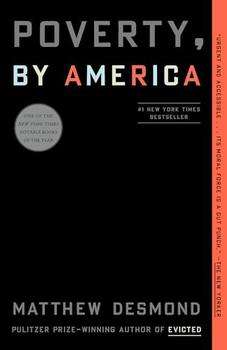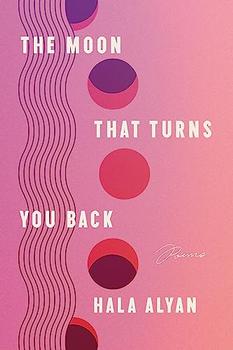Reading Guide Questions

Please be aware that this discussion guide will contain spoilers!
-
What was your experience reading Poverty, by America? What three words describe that experience, and why?
-
Desmond defines poverty as "a tight knot of social problems," breaking with conventional definitions that focusonly on low incomes. What are the implications of this view? How would you define poverty?
-
"We've been trained to see the poor as idle and unmotivated since the earliest days of capitalism," says Desmond. He also writes that "these old tropes and stereotypes are dying." When have you experienced these tropes and stereotypes? Do you think their power is in fact waning?
-
"To understand the causes of poverty, we must look beyond the poor," notes Desmond from the outset, "which makes this a book about poverty that is not just about the poor. Instead, it's a book about how the other half lives, about how some lives are made small so that others may grow." How does this focus deepen the author's arguments and proposed solutions?
-
Reflect on the statement: "some lives are made small so that others may grow." What does that mean to you, and how does it relate to poverty in America?
-
What did you learn from Poverty, by America that surprised you?
-
In 1961, James Baldwin remarked how "extremely expensive it is to be poor." What might that mean in 2023?
-
"America's poverty is not for lack of resources. We lack something else." What do we, as a country, and as a citizenry, lack in this context?
-
Poverty in America is often invisible, but it can also be very public. When you see a tent encampment, or homeless people sleeping on the sidewalk, what goes through your mind? What questions do you ask yourself?
-
Through his research, Desmond discovered that billions of dollars set aside for assistance to the poor remains unclaimed. Why do you think this is?
-
Race and racism are pressing issues in America's poverty crisis. Desmond writes: "Anti-Black racism hardens Americans' antagonism toward social benefits." Do you see this antagonism in your family, in your social circle, in your community? How might you address it?
-
Desmond writes: "Those who benefit most from government largesse—generally white families with accountants—harbor the strongest anti-government views." Explain this disconnect.
-
"As people accumulate more money," Desmond writes, "they become less dependent on public goods and, in turn, less interested in supporting them." What does this mean for public schools and public transportation? How does this translate toward feelings for government workers? What are the consequences of advancing privatization?
-
Discuss the disconnect between our rising incomes and the deterioration of public investment. What does it truly mean to expand opportunity?
-
Desmond found that "every year, the richest American families receive almost 40 percent more in government subsidies than the poorest American families." Did this fact surprise you? Can you think of ways that you or your family benefit from government assistance that you've never thought of as "welfare"? Do you think differently about it now?
-
Regarding public housing, Desmond writes: "Two things are true. First, most Americans want the country to build more public housing for low-income families. Second, most Americans do not want that public housing (or any sort of multi-family housing) in their neighborhood." How do you think you and your neighbors would respond if your town considered building an affordable housing development in your community? Have you witnessed NIMBYism in your neighborhood or your town? What are ways we can counter the NIMBY position?
-
"The I.R.S. now estimates that the United States loses over $1 trillion a year in unpaid taxes," Desmond writes," most of it owing to multinational corporations and wealthy families." As part of the recently passed Inflation Reduction Act, Congress has appropriated $80 billion to go after tax cheats and evaders. Do you support these efforts? Why do you think our country has such a high tolerance for tax avoidance?
-
Desmond urges us all to become poverty abolitionists. How does he suggest we do that? Which of these efforts do you think will make the biggest difference in reducing, if not abolishing, poverty?
-
"Poverty abolitionism is a personal and political project," Desmond writes. What are some ways you have considering making it a "personal project"? What sort of choices are you reimagining? How might you conduct a "poverty audit" in your own family, school, workplace, or community?
Unless otherwise stated, this discussion guide is reprinted with the permission of Crown.
Any page references refer to a USA edition of the book, usually the trade paperback version, and may vary in other editions.

 Book Reviewed by:
Book Reviewed by:


